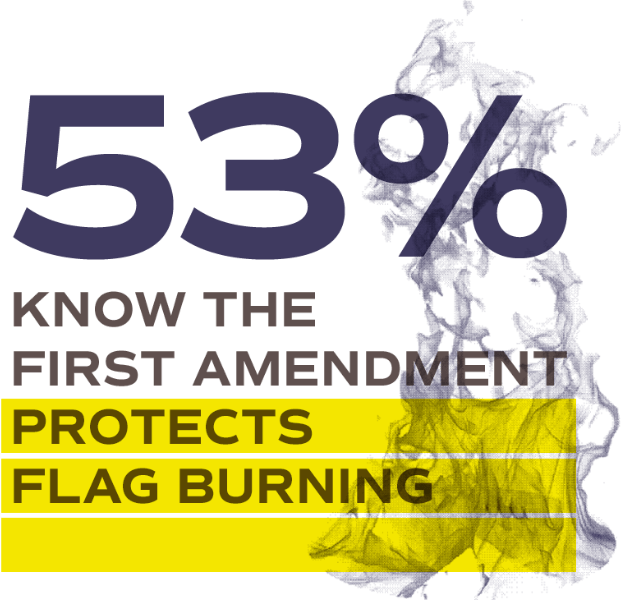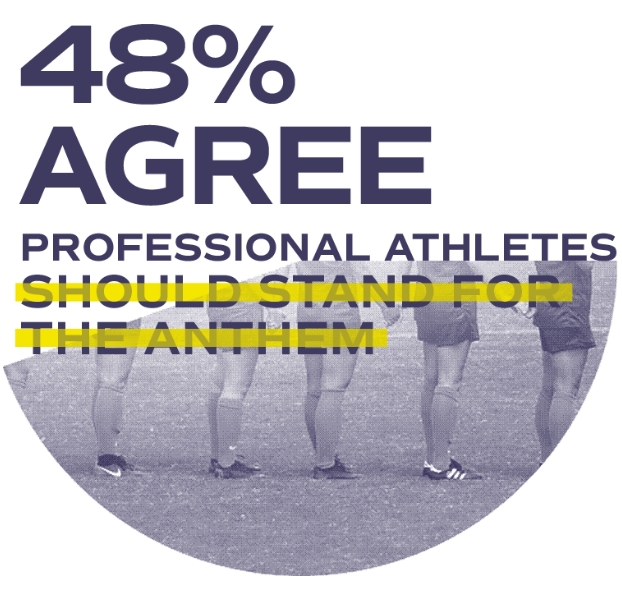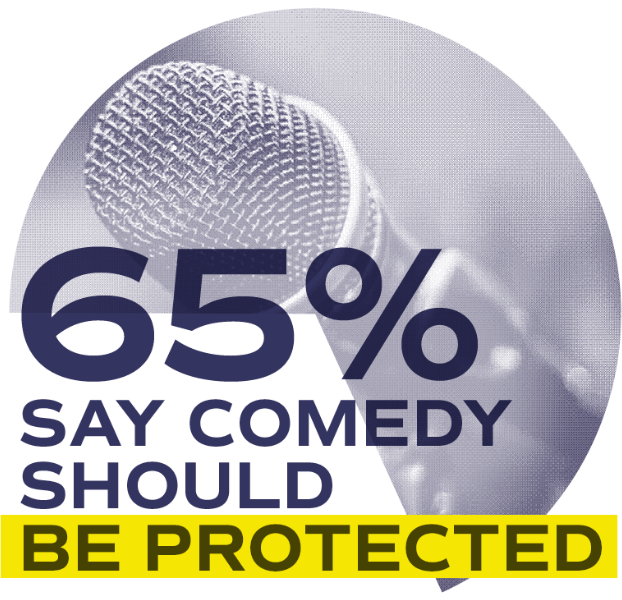Speech
Note: survey results from data collected in 2020.
Support for free speech — the best-known of the five First Amendment freedoms — faces increasingly complex and urgent tests. Many revolve around hostile or hateful expression and if or how it should be moderated.
More than three-quarters (78%) of Americans can name speech as a First Amendment freedom unprompted. Almost all (93%) can identify it from a list. When asked which of the five freedoms of the First Amendment they consider most essential, 33% named freedom of speech. All five are equally essential, said 41%.
Hate Speech: Prevent or Preserve?
Most Americans (57%) know that the First Amendment protects hate speech, but they are divided on whether it should:
- More than a third (36%) say preventing hate speech is more important than preserving free speech; 35% would prioritize free speech, and 28% were neutral.
- When asked about hate speech, 39% of respondents said people should be able to say what they really think, while 24% say hate speech should be outlawed. Thirty-seven percent didn’t lean strongly either way.

Sign of the divisive times?
More than four in 10 people (45%) say they have, at least once, not expressed an opinion for fear of punishment. Nearly half (49%) have never shared a political opinion on social media. Younger Americans are more likely to say they have self-censored. As for political correctness, 58% of people believe it goes too far in hampering free speech.
Campus Controversy
Most people (59%) think college campuses should foster a free expression of ideas, even if those ideas are offensive to some. But 36% of people think colleges and universities represent a threat to the First Amendment, perhaps a reflection of efforts by students, administrators and even lawmakers to curtail speech that represents controversial perspectives.

You don’t say…
The First Amendment protects not only verbal speech, but many other types of expression:

Just over half (53%) of Americans know the First Amendment protects flag burning. Even more (69%) say to do so is wrong.

Nearly half (48%) say professional athletes should stand for the national anthem. Only 34% correctly said professional athletes can be fired based on their political activity, because they work for private, not government, employers.

Just over a third (37%) say there’s nothing wrong with celebrities or others with strong opinions getting boycotted or “cancelled” for making controversial comments online or in public. Nearly three in 10 weren’t sure.

Support for humor is broad, with 65% of people agreeing that even boundary-pushing comedy should be protected speech.
Agree or Disagree?
“Preventing hate speech is more important than preserving free speech”
Most Americans (57%) know that the First Amendment protects hate speech, but they are divided on whether it should: More than a third (36%) say preventing hate speech is more important than preserving free speech. Thirty-five percent would prioritize free speech. Twenty-eight percent were neutral.
“Cancel culture is acceptable”
Just over a third (37%) of respondents say there’s nothing wrong with celebrities or others with strong opinions getting boycotted or “cancelled” for making controversial comments online or in public. Nearly three in ten weren’t sure.